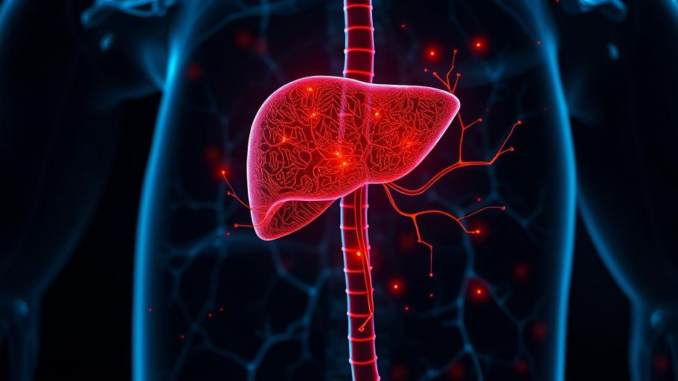
Summary
This article explores the transformative role of artificial intelligence (AI) in enhancing liver cancer detection, focusing on its ability to analyze medical images and identify potentially cancerous areas that might be missed by traditional methods. AI algorithms excel at recognizing patterns and anomalies in imaging data, leading to earlier and more accurate diagnoses, ultimately improving patient outcomes. This advancement marks a significant step forward in the fight against liver cancer, offering new hope for at-risk individuals.
Healthcare data growth can be overwhelming scale effortlessly with TrueNAS by Esdebe.
** Main Story**
Okay, so, AI is making waves in healthcare, especially when it comes to spotting liver cancer. And honestly, it’s about time!
Traditional methods like ultrasounds and those AFP blood tests, they often miss liver cancer in its early stages – which, as you know, is when treatment works best. It’s frustrating, right? But here’s where AI steps in, and it’s pretty impressive.
AI’s Superpower: Spotting What We Miss
AI algorithms, they’re like super-powered image analysts. They’re trained on tons of medical images, learning to see the difference between healthy and cancerous liver tissue. Because of this, they can pick up on tiny patterns and changes that a human eye might just glaze over. So, it’s not just about finding something, it’s about finding it early.
Think about it. They sift through all that complex imaging data, highlighting anything suspicious for doctors to take a closer look at. That’s a game-changer, isn’t it?
For example, ultrasounds are great and all, but they can be tricky, particularly with patients who have cirrhosis. It can be hard to tell if a nodule is benign or something to worry about. AI, on the other hand, it can offer a more detailed analysis, boosting diagnostic accuracy and meaning fewer invasive biopsies. And nobody wants one of those!
Why Early Detection Matters (A Lot!)
Catching liver cancer early, that’s key to successful treatment. It’s a fact. But here’s the rub: liver cancer often doesn’t show any obvious symptoms in the beginning. Talk about sneaky! By the time you realize something’s wrong, it might be too late, and treatment options get limited, and survival chances take a hit. That’s the reality.
And this is where AI-powered tools come into play. They can spot those suspicious areas way sooner, which means quicker intervention and treatment. That early detection? It can really change the game, boosting the odds of treatment working and extending survival. A friend of mine, actually, her father-in-law, they caught his early thanks to some new imaging techniques. So there is cause for hope.
Risk Stratification: AI’s Personalized Approach
But AI isn’t just about images; it’s also helping us figure out who’s most at risk. These models use everything – medical history, lifestyle, genetics – to assess a person’s chances of developing liver cancer. Now that’s smart.
Instead of relying on general risk factors that might not be spot-on for everyone, AI gives us a personalized risk profile. This means we can use healthcare resources more efficiently, making sure the people who need it most get the screening and care they deserve.
AI’s Impact on HCC Screening and Surveillance
So, HCC screening and surveillance – super important for catching it early, especially in those high-risk groups. The beauty of AI? It can make current screening methods both more sensitive and more specific.
AI algorithms can analyze those ultrasound images, spotting tiny HCC lesions that might have been missed with a traditional reading. This boost in sensitivity? It can lead to an earlier diagnosis and intervention, and ultimately, better patient outcomes.
That said, AI can also improve the accuracy of serum biomarkers, like AFP, in spotting HCC. By combining imaging data with biomarker analysis, those AI algorithms can boost the overall accuracy of HCC screening. It reduces false positives, ensuring patients get the right care at the right time.
What’s Next for AI in Liver Cancer Detection?
As AI technology keeps advancing, its impact on liver cancer detection is only going to get bigger. Researchers are busy developing new AI algorithms and tools that are even better at finding cancerous lesions. It’s pretty exciting, and I think it offers real hope for earlier detection, more effective treatment, and improved outcomes for patients.
The integration of AI into clinical practice, well, it has the potential to completely change how we handle liver cancer, reducing mortality rates and improving the quality of life for those affected by this devastating disease. And frankly, what’s not to like about that?


AI’s ability to personalize risk stratification using diverse data points holds significant promise. How might incorporating real-time patient feedback and lifestyle data further refine these risk models and enhance preventative care strategies?
That’s a great point! Incorporating real-time patient feedback and lifestyle data could significantly refine AI’s risk models. Imagine an app that tracks diet, exercise, and symptoms, feeding that data directly into the AI. This could lead to even more personalized and effective preventative care strategies, empowering patients and improving outcomes. The future is bright for early diagnosis. What is your opinion?
Editor: MedTechNews.Uk
Thank you to our Sponsor Esdebe
AI spotting what we miss? Superpowers, indeed! So, when do we get AI that can also remind us to book our appointments? Early detection is great, but early *action* is where the real magic happens.